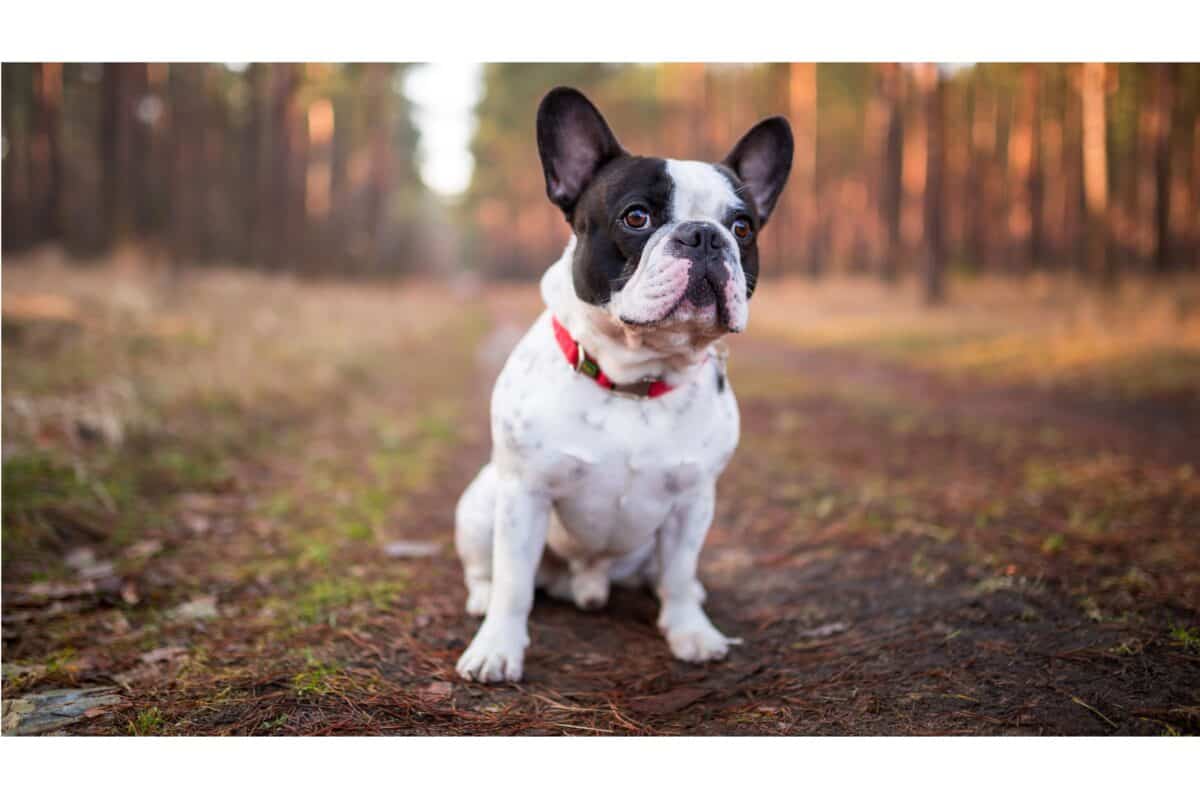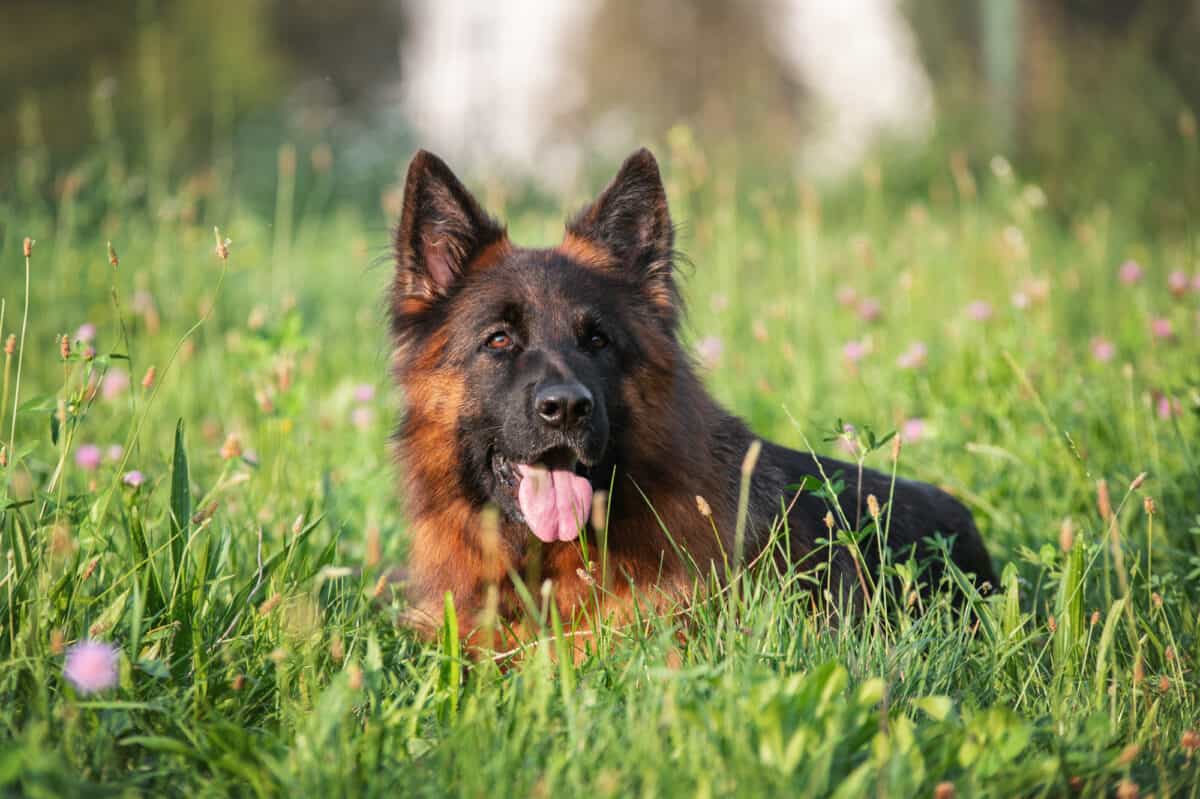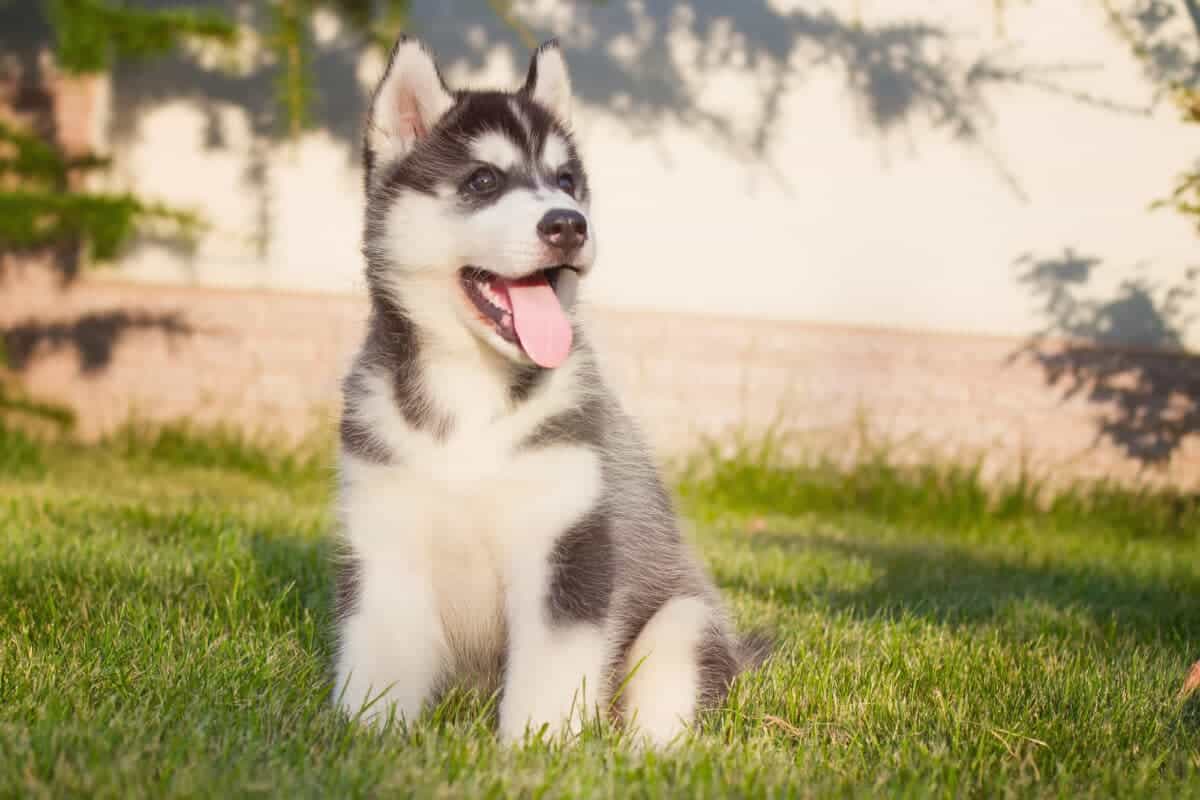Choosing the right dog breed is crucial for a harmonious pet-owner relationship. While all dogs have their unique charms, some breeds may not align with every lifestyle. Here are 12 breeds experts consider overrated, along with insights into their specific needs and challenges.
Labrador Retriever: The Energetic Companion

Labrador Retrievers are often regarded as the ultimate family dog—friendly, intelligent, and eager to please. Their popularity is undeniable, but does that mean they’re the perfect breed for everyone? Experts argue that Labs may be one of the most overrated breeds due to their high-maintenance needs, boundless energy, and common health issues.
Why Some Experts Consider Them Overrated
1. Energy Levels That Require Commitment
Labradors are not couch potatoes. They are high-energy dogs bred for retrieving and endurance. While their enthusiasm is charming, it can become overwhelming for owners who aren’t prepared for daily vigorous exercise. Without adequate physical and mental stimulation, Labs can develop destructive behaviors like chewing furniture, excessive barking, or digging.
2. The Appetite of a Bottomless Pit

Labradors are notorious for their love of food—so much so that many have a genetic mutation that impairs appetite regulation. This makes them highly prone to obesity, which can lead to serious health complications such as diabetes, joint issues, and heart disease. If you’re not strict about portion control and exercise, you might find yourself with a very round Labrador.
3. Common Health Problems
Despite their sturdy appearance, Labradors are susceptible to several hereditary health conditios:
- Hip and Elbow Dysplasia: A genetic disorder affecting joint development, leading to mobility issues.
- Ear Infections: Their floppy ears trap moisture, making them prone to chronic ear infections.
- Arthritis: Many Labs develop arthritis later in life due to their size and predisposition to joint problems.
4. Shedding and Grooming Needs
Though they have short coats, Labs shed—a lot. Their dense double coat requires frequent brushing to control shedding, especially during seasonal changes. If you dislike vacuuming dog hair daily, this might not be the breed for you.
Final Verdict: Are They Truly Overrated?
Labradors are affectionate, intelligent, and highly trainable, but they require dedicated owners who can meet their exercise, grooming, and health care needs. If you’re not ready for an energetic, food-obsessed companion that sheds endlessly and demands constant activity, you might find their reputation as the “perfect family dog” a little overstated.
French Bulldog: The Adorable Yet Delicate

French Bulldogs have skyrocketed in popularity, becoming one of the most sought-after breeds worldwide. Their compact size, signature bat ears, and affectionate personalities make them seem like the perfect city dog. But are they truly all they’re hyped up to be? Many experts argue that Frenchies might just be one of the most overrated dog breeds—mostly due to their extensive health problems and high-maintenance care.
Why Some Experts Consider Them Overrated
1. Serious Breathing Problems
French Bulldogs are a brachycephalic breed, meaning their short snouts make breathing a challenge. This leads to:
- Chronic snorting, snoring, and labored breathing.
- Increased risk of overheating, as they struggle to regulate body temperature.
- Potential need for surgery to correct airway blockages in severe cases.
This means that activities like long walks, strenuous exercise, or even just lounging in warm weather can be dangerous for them.
2. Constant Health Issues
Frenchies are prone to a long list of genetic disorders, including:
- Spinal Problems (Hemivertebrae): Deformed vertebrae can lead to paralysis in extreme cases.
- Skin Infections: Their adorable face wrinkles trap moisture and bacteria, leading to painful skin infections.
- Digestive Issues: Many French Bulldogs have sensitive stomachs and food allergies, requiring specialized diets.
Vet bills for a Frenchie can add up fast, making them a costly companion beyond their already high purchase price.
3. Limited Exercise Tolerance
If you’re looking for an active dog to join you on hikes or jogs, a Frenchie is not the breed for you. Their short legs and breathing difficulties make them more suited for short strolls and indoor play. Even moderate exercise can leave them panting heavily.
4. High Price, High Maintenance
French Bulldogs are one of the most expensive breeds to purchase due to their breeding challenges. Since most cannot give birth naturally, breeding often requires artificial insemination and C-sections, driving up costs. Add in the frequent vet visits, specialized diets, and regular wrinkle-cleaning, and you’ve got one high-maintenance pup.
Final Verdict: Are They Truly Overrated?
French Bulldogs are undeniably adorable, affectionate, and great for small living spaces, but their extensive health issues and high costs make them less than ideal for many owners. If you’re set on getting a Frenchie, be prepared for a breed that requires constant care, medical attention, and a budget for vet bills. For those looking for a low-maintenance companion, this might not be the best fit.
German Shepherd: The Loyal Protector

German Shepherds are one of the most recognizable and admired dog breeds in the world. Known for their intelligence, loyalty, and versatility, they excel in roles ranging from police and military work to service and search-and-rescue missions. But are they really the ideal dog for the average pet owner? Experts argue that despite their many strengths, German Shepherds are often overrated, especially by first-time dog owners who may not realize the challenges that come with this breed.
Why Some Experts Consider Them Overrated
1. They Require Constant Training and Mental Stimulation
German Shepherds are highly intelligent, which is great—until they get bored. An under-stimulated Shepherd can develop destructive behaviors, excessive barking, and even anxiety. They require:
- Structured training sessions from an early age.
- Mental enrichment like puzzle toys and agility exercises.
- Owners who are experienced in handling intelligent working breeds.
Without proper training, they can become unmanageable, making them a challenge for inexperienced owners.
2. High Energy Levels and Exercise Demands
German Shepherds are working dogs with energy levels to match. They need at least 1-2 hours of exercise daily, including:
- Long walks or runs.
- Intense play sessions.
- Jobs to do, such as obedience training or scent work.
If they don’t get enough physical activity, they can develop behavioral problems, making them unsuitable for inactive households.
3. Serious Health Issues

German Shepherds are prone to a variety of genetic health conditions, including:
- Hip and Elbow Dysplasia: Can lead to painful arthritis and mobility issues.
- Degenerative Myelopathy: A progressive disease causing paralysis.
- Bloat (Gastric Dilatation-Volvulus): A life-threatening condition where the stomach twists.
These issues can result in high vet bills and specialized care needs, adding to the overall cost of ownership.
4. Heavy Shedding and Grooming Needs
German Shepherds shed a lot—year-round, with two major seasonal blowouts. Owners should be prepared for:
- Daily brushing to manage their thick double coat.
- Fur covering clothes, furniture, and pretty much everything else.
If you’re not up for constant grooming and vacuuming, this may not be the breed for you.
Final Verdict: Are They Truly Overrated?
German Shepherds are undeniably intelligent, loyal, and capable dogs, but they aren’t for everyone. Their high energy, intense training needs, and health concerns make them better suited for experienced dog owners who have the time and resources to meet their needs. For those looking for a more low-maintenance companion, this breed might be more work than it’s worth.
Golden Retriever: The Affectionate Shedder

Golden Retrievers have long been America’s sweetheart dogs. Their friendly demeanor, intelligence, and classic golden coats make them one of the most popular breeds worldwide. But are they really the ideal pet for everyone, or are they a bit overrated? Experts argue that despite their many appealing traits, Golden Retrievers come with challenges that potential owners often overlook.
Why Some Experts Consider Them Overrated
1. They Require Lots of Attention and Exercise

Golden Retrievers are high-energy dogs bred for retrieving game. This means they need at least 1-2 hours of exercise daily, including:
- Swimming sessions.
- Interactive games like fetch or agility training.
Without adequate exercise, they can become restless, destructive, and prone to developing bad habits like excessive barking or chewing.
2. Heavy Shedding and High Maintenance Coat
Golden Retrievers shed constantly, with peak shedding seasons in spring and fall. Be prepared for:
- Daily brushing to prevent matting and control shedding.
- Fur-covered floors, furniture, and clothes.
- Regular baths and grooming to maintain their coat’s health.
If you don’t enjoy spending time grooming or vacuuming, this breed might be a challenge.
3. Prone to Serious Health Issues
Goldens are notorious for having a shorter lifespan due to high rates of cancer and genetic disorders. Common health concerns include:
- Hip and Elbow Dysplasia: Can lead to painful arthritis and mobility issues.
- Skin Allergies & Hot Spots: Frequent itching and infections can be expensive to manage.
- Hypothyroidism: Affects energy levels and weight control, requiring lifelong medication.
- Cancer: Unfortunately, Golden Retrievers have a higher risk of cancer than most other breeds, with hemangiosarcoma and lymphoma being common.
Veterinary bills can add up quickly, making them a costly breed to own in the long run.
4. Not the Best Guard Dogs
While their friendly nature makes them great family pets, it also means they’re terrible guard dogs. A Golden Retriever is more likely to greet an intruder with a wagging tail than to defend the home. If you’re looking for protection, this isn’t the breed for you.
Final Verdict: Overrated or Just Misunderstood?
Golden Retrievers are wonderful dogs for the right owners—those who can dedicate time to training, grooming, and meeting their high energy needs. However, they’re often overrated as “perfect family dogs” when, in reality, they require significant care, exercise, and financial commitment. For first-time dog owners or those looking for a low-maintenance pet, there might be better breed options.
Bulldog: The Laid-Back Companion

Bulldogs, with their signature wrinkles and unmistakable expressions, are one of the most beloved breeds worldwide. Their laid-back demeanor and affectionate nature make them popular companions. But are they really the ideal pet for everyone, or is their reputation inflated? Experts argue that despite their charm, Bulldogs come with serious health and care challenges that many owners don’t anticipate.
Why Some Experts Consider Bulldogs Overrated
1. Serious Breathing Issues
Bulldogs are a brachycephalic breed, meaning their short snouts severely restrict airflow, leading to Brachycephalic Airway Syndrome. This causes:
- Loud snoring and labored breathing even at rest.
- Increased risk of heatstroke, as they struggle to regulate body temperature.
- Exercise intolerance, making even moderate activity exhausting for them.
Many Bulldogs require corrective surgery to improve airflow, which can be costly and risky.
2. High Maintenance and Health Costs
Owning a Bulldog is not cheap—their high vet bills and frequent medical needs make them one of the most expensive breeds to own. Common health problems include:
- Hip Dysplasia – Bulldogs have one of the highest rates of hip dysplasia, leading to joint pain and mobility issues.
- Skin Infections – Their adorable wrinkles trap moisture and bacteria, requiring daily cleaning to prevent painful infections.
- Obesity – Bulldogs love food but are prone to weight gain, which worsens their breathing and joint problems.
- Short Lifespan – Bulldogs have an average lifespan of just 7-10 years, with many suffering from chronic health issues throughout their lives.
3. Low Energy but High Care Needs
While Bulldogs don’t need excessive exercise, they require constant care and attention due to their:
- Grooming demands – Cleaning skin folds and wrinkles is a daily task.
- Limited heat tolerance – They can’t handle warm weather and need climate-controlled environments.
- Stubbornness – Training can be challenging due to their strong-willed nature.
4. Ethical Concerns in Breeding
Due to selective breeding, Bulldogs are often born via C-section, as their large heads make natural birth difficult. Many experts argue that the breed’s extensive health problems make them an example of unethical breeding practices, raising concerns about their long-term welfare.
Final Verdict: Should You Get a Bulldog?
Bulldogs are loving and loyal, but they require extensive care, regular vet visits, and a financial commitment that not every owner can handle. If you’re looking for a low-maintenance, active, or long-lived breed, Bulldogs may not be the best choice. However, for those willing to put in the effort and resources, they can be wonderful, affectionate companions.
Before getting a Bulldog, consider the long-term responsibility and whether you’re prepared for the challenges that come with their adorable, yet demanding, nature.
Chihuahua: The Tiny Dynamo

Chihuahuas: Tiny Titans or Overrated Divas?
Chihuahuas, with their big personalities packed into tiny frames, have long been a popular breed among dog lovers. They’re often seen peeking out of celebrity handbags or strutting confidently despite their small size. But are they really the ideal pet, or has their popularity overshadowed the challenges that come with owning one?
Why Some Experts Consider Chihuahuas Overrated
1. Big Attitude in a Tiny Package
Despite their adorable size, Chihuahuas can be territorial, possessive, and prone to aggressive behavior. They often bond closely with one person, leading to:
- Jealousy issues if another pet or family member gets attention.
- Snappiness toward strangers if not properly socialized.
- Difficulty in multi-pet households, as they tend to challenge larger dogs despite their small size.
Chihuahuas may look like lap dogs, but their bold, feisty nature can make them high-maintenance.
2. Not as Low-Maintenance as They Seem
Many assume Chihuahuas require minimal care due to their small size. However, they come with unique health challenges:
- Molera (soft spot on the skull) – Unlike most dogs, Chihuahuas often retain a soft spot on their heads, making them prone to head injuries.
- Dental Issues – Due to their small mouths, they frequently suffer from overcrowded teeth, leading to decay and gum disease.
- Fragile Bones – Their delicate bodies make them vulnerable to injuries, even from minor falls or rough play with children.
3. Training Can Be a Challenge
While Chihuahuas are intelligent, they also have a stubborn streak that can make training difficult. Many develop:
- Excessive barking habits – If not trained early, they will bark at anything and everything.
- Housebreaking difficulties – They are notoriously hard to potty train, and many owners resort to indoor pee pads.
- “Small Dog Syndrome” – Without proper discipline, they can become bossy, demanding, and resistant to commands.
A Chihuahua that isn’t properly trained can be a handful, despite weighing less than 6 pounds.
4. More Bark Than Bite?
Many people find Chihuahuas’ confidence and attitude amusing, but experts warn that their constant barking and defensive nature can be problematic.
- Their high-pitched barks can be disruptive, especially in apartments.
- They often act like guard dogs, despite not being physically capable of protecting anything.
- Without socialization, they can be aggressive toward visitors, other dogs, and even their owners.
Final Verdict: Are Chihuahuas Worth the Hype?
Chihuahuas can make great companions for the right owner, but they require firm training, patience, and careful handling due to their size and temperament. They’re best suited for experienced dog owners who can commit to training and socialization.
If you’re looking for a quiet, easygoing, low-maintenance dog, a Chihuahua might not be the best choice. But if you love big personalities in tiny bodies and don’t mind a bit of sass, they might just be the perfect (pint-sized) pet for you.
Dachshund: The Charming but Challenging

Dachshunds, with their distinctive long bodies and tiny legs, have earned a devoted fan base worldwide. Whether as the beloved “wiener dog” or a fearless hunter, they’re undeniably charming. But are they as great as their reputation suggests, or do their challenges outweigh their appeal?
Why Experts Consider Dachshunds Overrated
1. A Big Personality That Can Be Too Much to Handle
Dachshunds may be small, but their personalities are huge—sometimes too huge.
- Stubborn Streak – They are independent thinkers, which can make training frustrating.
- Separation Anxiety – Dachshunds bond deeply with their owners and can become destructive when left alone.
- Bossy & Territorial – Without firm training, they develop a Napoleon complex, barking excessively and challenging much larger dogs.
If you’re looking for an easygoing, quiet breed, a Dachshund might not be the best fit.
2. Fragile Backs, Big Vet Bills
Their elongated bodies are adorable, but they come with serious health risks, particularly Intervertebral Disc Disease (IVDD).
- High Risk of Back Injuries – Even minor jumps off furniture can cause lifelong spinal problems.
- Surgery Can Be Expensive – Treating IVDD often requires thousands of dollars in medical bills, making them one of the most injury-prone breeds.
- Weight Gain Makes It Worse – Dachshunds love food, and excess weight increases the risk of disc disease.
If you’re not prepared to carry them up stairs and invest in ramps, owning a Dachshund can be a long-term physical and financial commitment.
3. Training Can Be a Battle
Despite their intelligence, Dachshunds are notoriously difficult to train.
- Potty Training Problems – Many owners report that housebreaking can take months—or never fully stick.
- Excessive Barking – They love to alert you to everything: the mailman, a squirrel, a leaf blowing in the wind…
- Strong Prey Drive – They were bred to hunt burrowing animals, so they love to dig, chase, and ignore commands when distracted.
Dachshunds require patient, consistent training, and even then, some bad habits may stick for life.
4. They’re More Work Than They Seem
Dachshunds are often marketed as small, low-maintenance dogs, but that’s misleading.
- Not Ideal for Apartments – Their barking can drive neighbors crazy.
- Not Always Good with Kids – Their small size makes them prone to injury, and they can snap when irritated.
- Require Special Handling – Jumping, rough play, or improper handling can lead to back problems.
Final Verdict: Are Dachshunds Worth the Hype?
Dachshunds can make affectionate, loyal companions, but they require patient training, careful handling, and a commitment to their health. If you’re not ready for barking, stubbornness, and potential spinal issues, you might want to reconsider.
However, if you’re dedicated, prepared, and love a dog with attitude, a Dachshund could be the perfect, sassy sidekick for you.
Boxer: The Energetic Enthusiast

Boxers: Overrated or Just Misunderstood?
Boxers are lively, muscular, and full of personality, making them a favorite among dog lovers. But are they truly as great as their reputation suggests, or do their challenges make them an overrated choice?
Why Experts Consider Boxers Overrated
1. A Ball of Energy That Can Be Hard to Handle

Boxers are high-energy dogs that never seem to grow up—literally.
- Endless Playfulness – They stay puppy-like for years, which can be adorable but exhausting.
- Need for Constant Exercise – Without proper outlets for their energy, they turn into destructive forces of nature.
- Jumpers & Chewers – If not trained early, your furniture, shoes, and personal space are at risk.
If you’re looking for a laid-back dog, a Boxer might be too much to handle.
2. Health Issues That Can Cut Their Lives Short
Boxers are prone to serious health conditions, making vet visits frequent and expensive.
- High Cancer Risk – One of the breeds most affected by cancer, including brain, blood, and heart-related cancers.
- Heart Conditions – Prone to arrhythmogenic right ventricular cardiomyopathy (ARVC) and other cardiac issues, which can lead to sudden heart failure.
- Brachycephalic Breathing Issues – Their short snouts make breathing difficult, especially in hot weather, leading to overheating and respiratory distress.
- Joint Problems – Hip dysplasia is common, leading to arthritis and mobility issues later in life.
If you’re not prepared for potentially high vet bills and special care needs, a Boxer might not be the best choice.
3. Not a Breed for the Inexperienced
Boxers are intelligent but also incredibly stubborn.
- Training Requires Patience – They love to test boundaries, meaning consistent, firm training is a must.
- Separation Anxiety – Boxers don’t like being left alone and can become anxious and destructive.
- Strong-Willed & Protective – They can develop guarding behaviors, which may lead to territorial aggression if not properly socialized.
New dog owners may struggle with their energy, willfulness, and need for constant companionship.
Final Verdict: Is a Boxer Right for You?
Boxers are loyal, affectionate, and endlessly entertaining, but they require a lot of exercise, training, and health care. If you don’t have the time, energy, or experience to handle their needs, they can quickly become a handful.
However, if you’re active, patient, and ready for a dog that’s full of love (and mischief), a Boxer could be your perfect companion.
Dalmatian: The Spotted Dynamo

Dalmatians: More Than Just a Spotted Icon?
Dalmatians have an instantly recognizable spotted coat and a reputation for being loyal and intelligent. But are they really the dream dog that pop culture makes them out to be? Experts argue that while Dalmatians are striking and energetic, they come with challenges that many owners aren’t prepared for.
Why Experts Consider Dalmatians Overrated
1. Endless Energy That Can Be Hard to Handle
Dalmatians were originally bred as carriage dogs, meaning they were built to run for miles alongside horses. This energy level hasn’t faded, and they require constant exercise to stay happy.
- High Activity Requirements – If they don’t get enough exercise, they can turn to destructive behavior, excessive barking, or hyperactivity.
- Not Ideal for Small Spaces – Apartments? Not the best idea. A Dalmatian thrives in homes with large yards or active owners who can keep up with their stamina.
If you’re looking for a laid-back lap dog, a Dalmatian might not be the best fit.
2. Health Issues That Can Be a Challenge
Despite their athletic build, Dalmatians are prone to several genetic health conditions that can be difficult to manage.
- Deafness – Around 15-30% of Dalmatians suffer from partial or complete deafness, a trait linked to their unique coat genetics.
- Bladder Stones & Urolithiasis – Dalmatians struggle to break down uric acid, making them prone to kidney and bladder stones. Special diets and constant hydration are necessary to prevent serious issues.
- Skin Allergies – Sensitive skin can lead to itching, rashes, and infections, requiring regular grooming and vet check-ups.
Owning a Dalmatian means staying vigilant about their health and investing in specialized care.
3. Temperament Isn’t as Easygoing as You Think
Dalmatians may be loyal and affectionate, but they also have traits that require early training and socialization.
- Can Be Aloof or Stubborn – Unlike the friendly Golden Retriever, Dalmatians aren’t always eager to meet new people or animals. If not socialized early, they may become distant or even snappy with strangers.
- Strong-Willed & Independent – They are highly intelligent but can also be stubborn when it comes to training. If you don’t establish leadership early, they may decide to call the shots.
- Not Always Kid-Friendly – Due to their high energy and potential for nipping when overstimulated, they may not be the best choice for young children.
If you want a dog that listens without question, a Dalmatian might test your patience.
Final Verdict: Are Dalmatians the Right Choice?
Dalmatians are gorgeous, intelligent, and energetic, but they require active owners, early training, and dedicated healthcare management. If you’re prepared for their endless energy, potential health issues, and stubborn streak, they can make wonderful, loyal companions.
However, if you’re simply drawn to their spotted coat and Disney fame, you might be in for a challenging surprise.
Siberian Husky: The Free-Spirited Sled Dog

iberian Huskies are undeniably one of the most striking dog breeds, with their piercing blue eyes and wolf-like appearance. But behind that stunning coat and playful personality lies a high-maintenance breed that many owners find overwhelming. Experts argue that while Huskies can be wonderful companions, they aren’t for everyone—and here’s why.
Why Siberian Huskies Are Considered Overrated
1. Boundless Energy That Requires an Active Owner
If you’re looking for a couch potato, Huskies are the exact opposite. Originally bred to pull sleds across long distances, they need hours of exercise daily to stay happy and well-behaved.
- Not Ideal for Sedentary Lifestyles – If left under-exercised, they turn to digging, chewing, and escaping as their favorite hobbies.
- Escape Artists Extraordinaire – Huskies are notorious for jumping fences, digging under enclosures, and even opening doors. If you don’t have a secure yard, expect a few great escape attempts.
- Always Ready to Run – These dogs have a strong instinct to bolt at any chance. Forget letting them off-leash unless you’re in a fully enclosed area.
Unless you’re ready to keep up with their Olympic-level endurance, a Husky might turn your home into a disaster zone.
2. More Independent Than Your Average Dog
While they may look like loyal wolves, Huskies aren’t the most obedient breed. They love their humans but have a stubborn, independent streak that can make training a challenge.
- Selective Listening – Huskies often pretend they don’t hear commands unless there’s something in it for them.
- Not Great for First-Time Owners – Their intelligence combined with stubbornness means they need firm, consistent training from an experienced handler.
- Escape Over Recall – Unlike retrievers that stick close to their owners, Huskies tend to run off at any opportunity, making them a poor choice for off-leash adventures.
If you want a dog that listens and follows commands consistently, a Husky might test your patience.
3. A High-Maintenance Coat That Sheds Like Crazy
Huskies have a thick double coat designed for freezing Arctic conditions, which means two things:
- They Shed. A Lot. – Twice a year, Huskies “blow” their coats, turning your home into a fur-covered nightmare.
- Not Ideal for Hot Climates – Thei thick fur makes them sensitive to heat, requiring constant shade, water, and air-conditioning in warmer regions.
- Regular Grooming Required – Even though they have a self-cleaning coat, their shedding and undercoat buildup still require frequent brushing.
If you don’t like fur everywhere, be prepared to vacuum daily.
4. They Talk. A Lot.
Huskies aren’t known for barking, but they make up for it by howling, whining, and “talking” in ways that might drive your neighbors crazy.
- Love to Communicate – They have a full range of sounds, from yodels to wolf-like howls.
- Not Ideal for Apartments – If you live in an apartment with thin walls, your Husky might get you noise complaints.
Want peace and quiet? A Husky probably isn’t your best option.
Final Verdict: Are Siberian Huskies the Right Choice?
Siberian Huskies are beautiful, intelligent, and playful dogs, but they require serious dedication. They need experienced owners who can handle their high energy, stubborn nature, and heavy shedding. If you’re active, patient, and willing to put in the effort, a Husky can be a fantastic companion.
However, if you’re drawn to their looks but not ready for the responsibility, you might end up with a frustrated, destructive, and rebellious dog. Make sure you know what you’re signing up for before bringing a Husky home.
Beagle: The Vocal Explorer

Beagles: Adorable, Playful, and Maybe Not for Everyone
Beagles are one of the most beloved dog breeds, thanks to their floppy ears, wagging tails, and friendly personalities. But while they may seem like the perfect family pet, experts argue that Beagles aren’t always as easygoing as they look. Before bringing one home, here’s what you should know about why some people consider Beagles overrated.
Why Beagles Are Considered Overrated
1. They Are Stubborn and Hard to Train
Beagles are highly intelligent, but that doesn’t mean they’re easy to train. In fact, their independent and stubborn nature can make them quite challenging for first-time dog owners.
- Selective Listening – Beagles are scent hounds, which means their noses dictate their actions. If they catch an interesting smell, they’ll follow it—even if you’re calling their name.
- Food Motivation (or Manipulation?) – While Beagles are trainable with treats, they also tend to manipulate their owners into constant snack-giving.
- House Training Can Take Longer – Their strong-willed nature means house training a Beagle requires patience and consistency.
If you want a dog that listens the first time you give a command, a Beagle might test your patience.
2. They Are Escape Artists
If you think your Beagle will stick close to home, think again. These dogs were bred to hunt and follow scents, meaning they’ll chase after anything interesting—even if that means running off.
- Strong Prey Drive – Beagles are hardwired to follow their noses, and once they catch a scent, nothing else matters.
- Secure Fencing Is a Must – They can dig, jump, and squeeze through small spaces, so a weak fence won’t stop them.
- Leash Training Is Essential – Off-leash play? Not a great idea unless you enjoy chasing your dog around the neighborhood.
Beagles are adorable, but you’ll need to keep a close eye on them—or risk losing them to the neighbor’s barbecue smell.
3. They Bark, Bay, and Howl—A Lot
Beagles have a lot to say, and they aren’t shy about it. Their vocal nature can make them problematic for apartment living or noise-sensitive households.
- They Bark When Bored – A Beagle left alone will make sure the whole neighborhood hears about it.
- They Howl and Bay – Unlike regular barking, Beagles have a distinct “bay” (a deep, drawn-out howl) that can be very loud.
- Separation Anxiety Makes It Worse – If left alone for too long, a Beagle might bark non-stop out of distress.
If you prefer a quiet home, a Beagle might not be the best match.
4. They Eat Everything (and Get Fat Fast)
Beagles love food—sometimes a little too much.
- They Will Steal Your Food – Beagles are notorious for counter-surfing, stealing from trash cans, and begging relentlessly.
- They Gain Weight Easily – Without proper portion control, they can quickly become overweight, leading to joint issues and other health problems.
- They Act Like They’re Always Starving – Even if they just ate, a Beagle will convince you they haven’t eaten in days.
If you don’t want a dog that steals food at every opportunity, a Beagle might frustrate you.
Final Verdict: Are Beagles the Right Choice?
Beagles are affectionate, playful, and full of personality, but they require patience, consistent training, and a high level of supervision. Their stubborn nature, high energy, and vocal tendencies make them best suited for experienced dog owners who understand their quirks.
If you’re ready for the challenge, a Beagle can be a fantastic, loving companion. But if you’re looking for an easy-to-train, quiet, and low-maintenance dog, you might want to consider another breed.
Pug: The Lovable but Fragile

Pugs have a huge fan base, thanks to their squishy faces, curly tails, and affectionate personalities. But while they might seem like the perfect little couch companion, many experts argue that they’re not as low-maintenance or ideal as they appear.
Before you get lost in those big, soulful eyes, here’s what you should know about why Pugs might not be the best breed for everyone.
Why Pugs Are Considered Overrated
1. They Have Major Breathing Issues
Pugs are brachycephalic dogs, which is a fancy way of saying their smooshed noses cause them serious breathing problems.
- Constant Snorting and Wheezing – Their airways are so restricted that many struggle to breathe, especially in heat or after mild exercise.
- Heat Sensitivity – Because they can’t cool themselves down efficiently, overheating is a major risk.
- Surgery May Be Necessary – Some Pugs require corrective airway surgery just to breathe properly.
If you’re looking for a dog that can run around the park without gasping for air, a Pug might not be the best choice.
2. They Have Bulging Eyes (That Get Injured Easily)
Yes, their big round eyes are cute, but they come with serious risks.
- Corneal Ulcers Are Common – Since their eyes stick out so much, they’re easily scratched or injured.
- Dry Eye and Infections – Many Pugs struggle with chronic eye conditions, requiring daily drops or medical care.
- Potential for Proptosis (Eye Displacement) – In extreme cases, a Pug’s eye can literally pop out of its socket if they suffer head trauma or excessive pressure.
If you’d rather not spend time worrying about eye injuries, a breed with less prominent eyes might be a better option.
3. They Gain Weight… Fast
Pugs love food—and they’re very good at begging for it.
- They Act Like They’re Starving (Even When They Just Ate) – Those big eyes? They’re using them to manipulate you into giving more treats.
- They’re Prone to Obesity – Because they’re small and not very active, they can pack on pounds quickly, making their breathing issues even worse.
- Portion Control Is Essential – You’ll have to strictly monitor their diet and resist their constant pleas for snacks.
A pudgy Pug might look adorable, but obesity can lead to serious joint, breathing, and heart problems.
4. Their Wrinkles Require Maintenance
One of the Pug’s most distinctive features is their adorable, wrinkled face—but those wrinkles can become breeding grounds for bacteria and infections.
- Skin Fold Infections Are Common – Moisture and debris can accumulate in their folds, leading to painful skin infections.
- They Need Regular Cleaning – Owners must wipe their wrinkles daily to prevent irritation and odors.
- Neglecting This Can Lead to Painful Rashes – Without proper care, Pugs can develop sores, redness, and bacterial infections in their folds.
If you’re not up for frequent face-wiping sessions, a lower-maintenance breed might be a better fit.
5. They’re Clingy (And Don’t Like Being Left Alone)
Pugs are people-oriented dogs that thrive on human attention.
- They Hate Being Left Alone – A lonely Pug can develop severe separation anxiety, leading to excessive barking, destructive behavior, and stress-related health issues.
- They’ll Follow You Everywhere – Expect to have a permanent shadow trailing you from room to room (yes, even the bathroom).
- Not the Best for Busy Owners – If you work long hours, a Pug might not be the best choice unless you can arrange for plenty of companionship.
While their loyalty is endearing, their constant need for attention might not be ideal for every household.
Final Verdict: Are Pugs Worth the Hype?
Pugs are undeniably lovable, but they come with a lot of health concerns and maintenance requirements. Their breathing issues, eye problems, weight struggles, and need for constant companionship make them a better fit for dedicated owners who can commit to their care.
If you’re ready to deal with the snorts, stubbornness, and vet visits, a Pug can be a charming and affectionate companion. But if you’re looking for a low-maintenance, active, and healthy dog, you might want to reconsider before jumping on the Pug bandwagon.
Choose the Breed That’s Right for You

When choosing a dog, it’s essential to consider how a breed’s characteristics align with your lifestyle. Research and understanding are key to ensuring a happy and healthy relationship with your canine companion.
- The Alaska Reserve Where You Can See All Five Big Mammals - August 12, 2025
- The Secret of Animals That Can Breathe Through Their Skin - August 11, 2025
- Fascinating Facts About Animals That Hibernate - August 11, 2025

